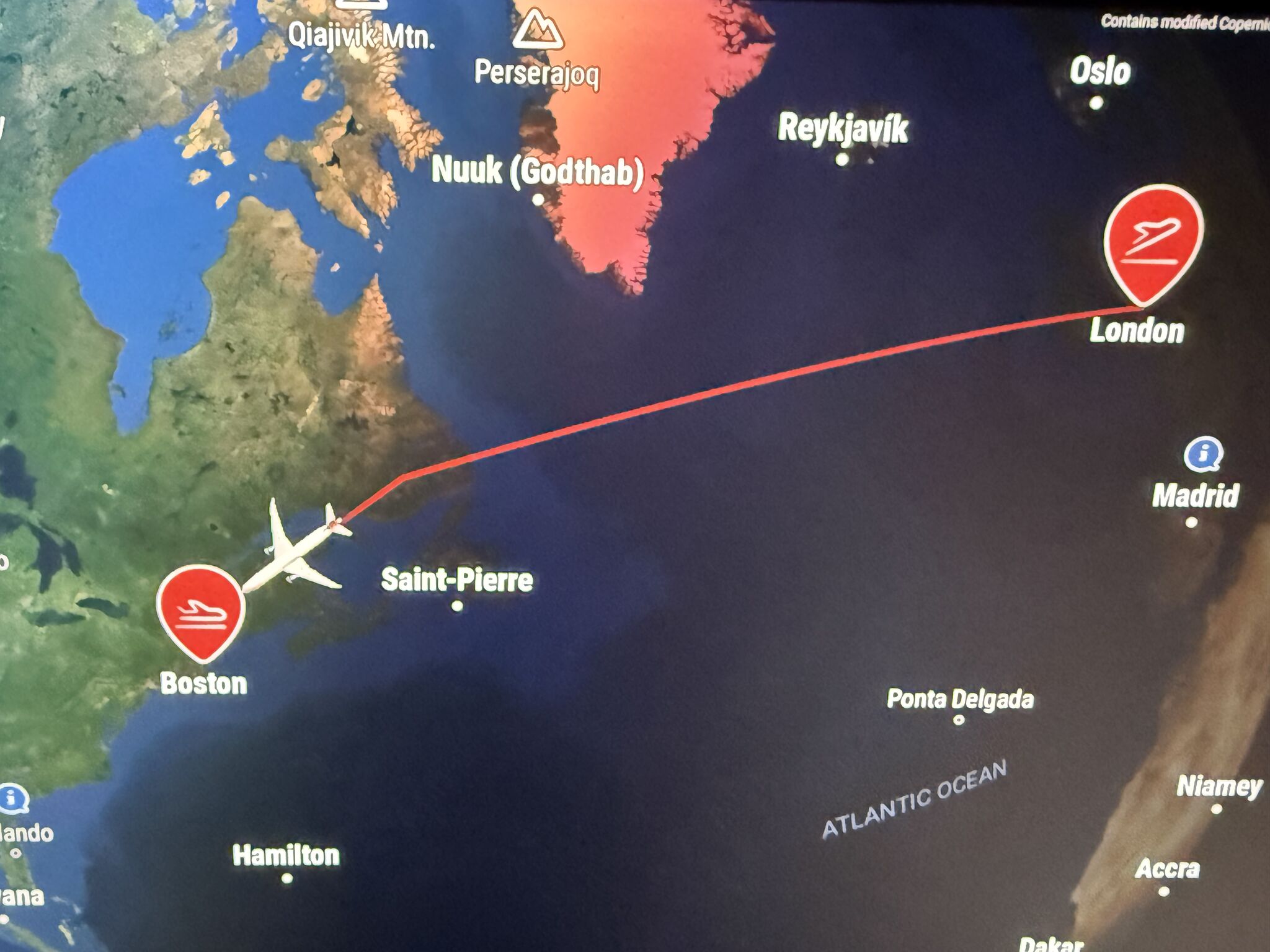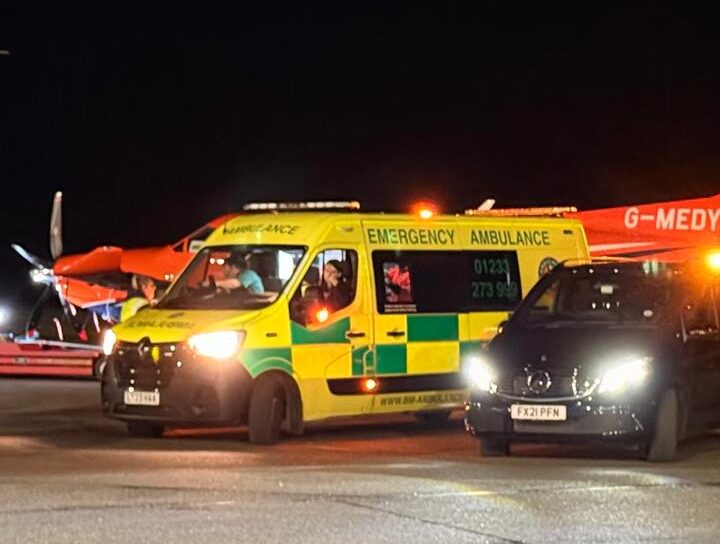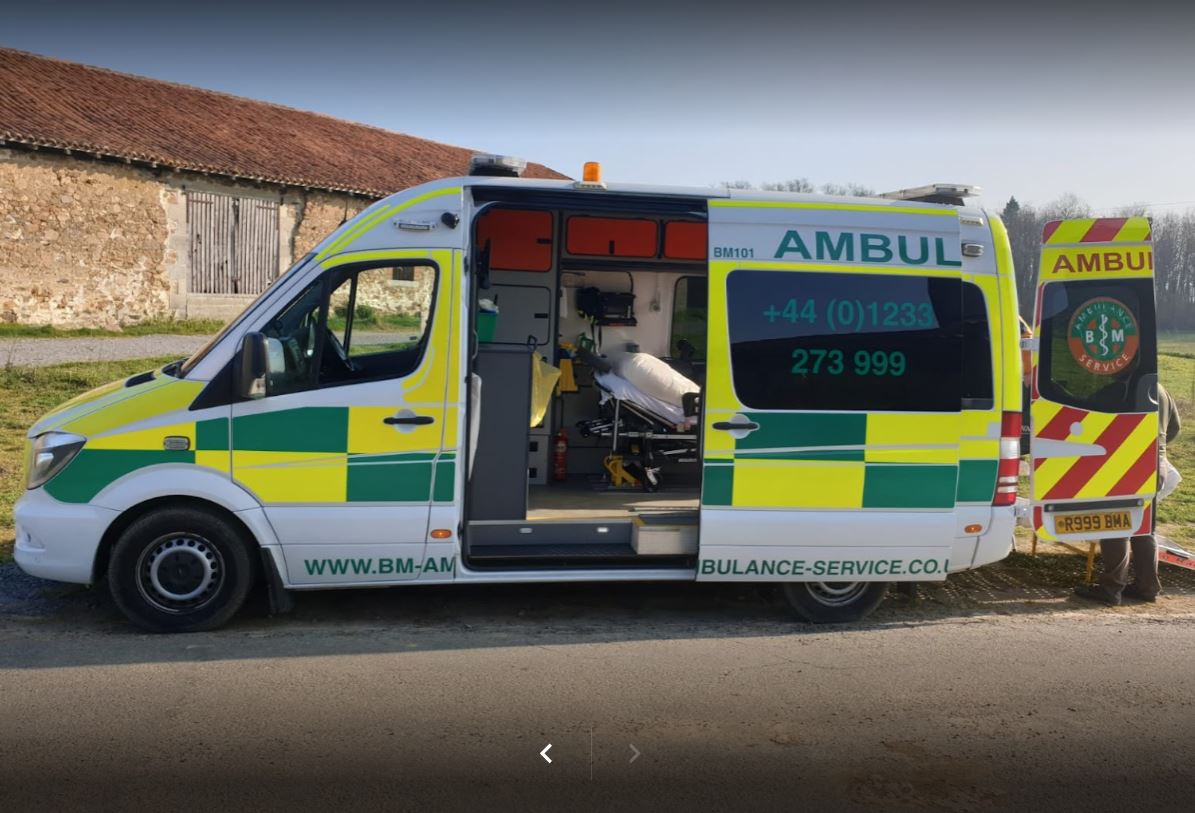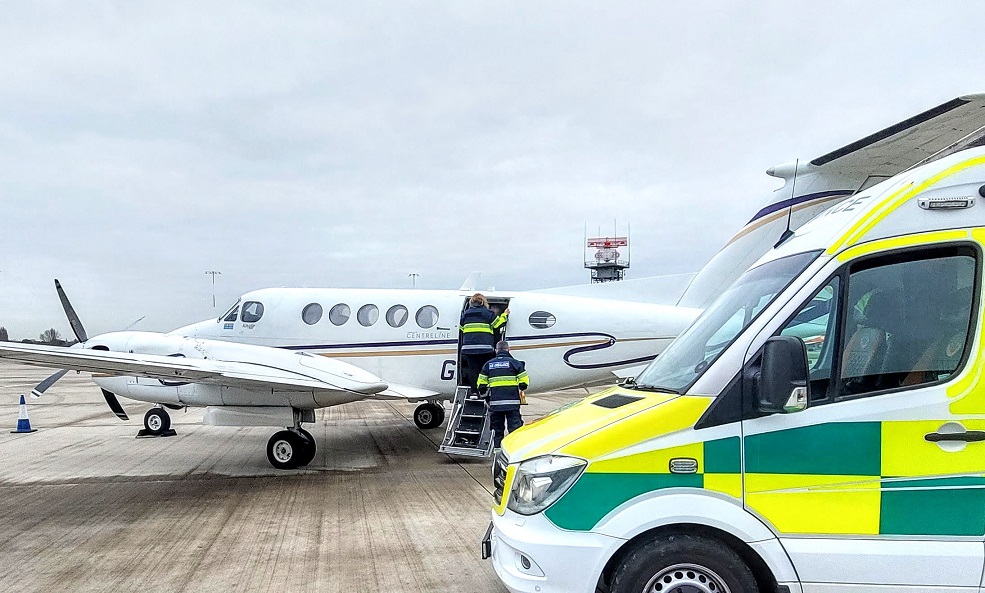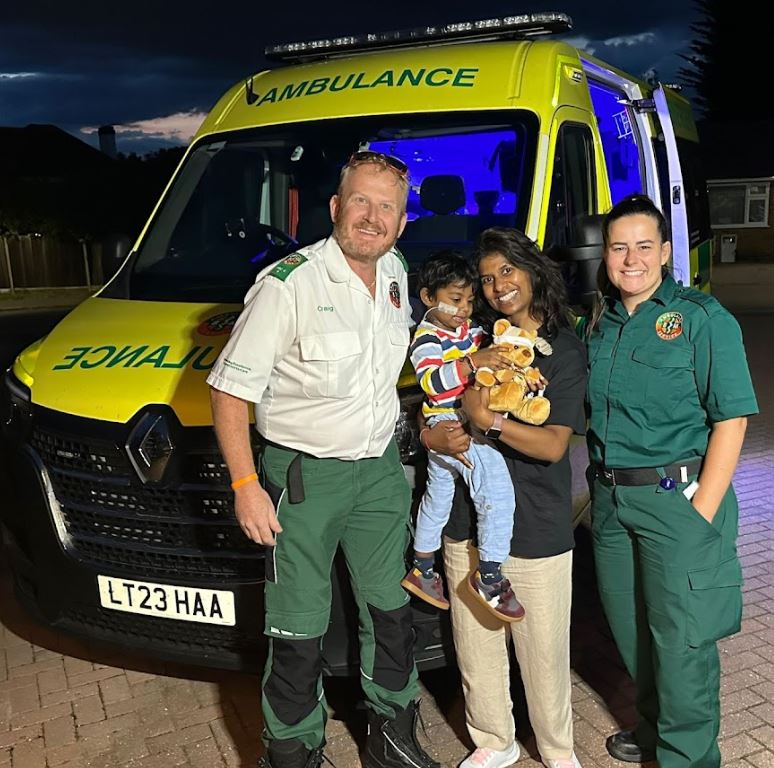European Road Repatriation FAQs
Answers to your questions about ground ambulance repatriation across Europe
Ground medical repatriation FAQ: Find answers to the most common questions about road-based ambulance transport across Europe. Whether you’re planning a repatriation for a loved one or seeking clarity around clinical care, luggage, or patient capacity, this guide explains the key details you need to know — based on SkyCare’s specialist experience.
When considering ground medical repatriation, patients and families often ask...
Road ambulance repatriation is a safe and practical option for patients who are medically stable and do not require intensive or time-critical care. It is particularly suited to lower-acuity patients whose condition allows for longer travel times, and who may not have the budget for an air ambulance.
This form of repatriation offers a cost-effective, door-to-door solution without the need for airport transfers, making it ideal for journeys within Europe. Every case is clinically assessed in advance, and we only proceed with road transport if the patient’s needs can be safely managed onboard.
For patients with higher medical complexity or urgent care requirements, SkyCare also operates a dedicated air ambulance service to ensure faster, specialist transport.
Many European hospitals are unfamiliar with the UK’s ambulance staffing model, where highly trained professionals like paramedics, ambulance technicians, and FREC4+ clinicians manage safe patient care without requiring a doctor onboard.
In countries where doctors regularly work on ambulances, there may be confusion about UK qualifications. That’s why SkyCare carefully reviews each patient’s medical reports internally and assigns the right skill mix for the journey — even if the hospital overseas suggests a nurse or doctor by default.
This ensures the patient receives the right level of care while also helping to manage costs and logistics effectively. When a higher level of clinical support is truly needed, we’re able to include a nurse or recommend air ambulance transport as appropriate.
Repatriating a patient who lacks the mental capacity to consent—often due to conditions like advanced dementia—requires careful consideration of legal and ethical obligations. In the UK, the Mental Capacity Act 2005 mandates that any decision made on behalf of someone who lacks capacity must be in their best interests, considering factors such as the person’s past and present wishes, feelings, beliefs, and values.
However, when operating in other European countries, we must also adhere to local laws and regulations concerning mental capacity and patient rights . This means that, while the principle of acting in the patient’s best interests remains paramount, the legal framework guiding such decisions may vary.
In practice, we collaborate closely with the treating hospital’s medical team to assess the patient’s condition and determine the most appropriate course of action. This includes obtaining up-to-date medical reports and, where necessary, consulting with legal representatives or ethics committees to ensure compliance with both UK and local laws.
Our goal is to ensure that any repatriation undertaken is safe, lawful, and truly in the best interests of the patient. We understand the sensitivities involved and are committed to handling each case with the utmost care and professionalism.
SkyCare’s specialist ambulances can travel extensive distances across Europe — and even further where ferry access allows. Our longest road-based repatriation to date reached Tenerife, using coordinated ferry crossings between Spain and the Canary Islands.
To maintain safety and efficiency, we operate with fully rested clinical and driving crews, allowing for continuous, uninterrupted progress. This helps reduce overall journey time while maintaining patient comfort and clinical oversight.
Every repatriation is carefully planned to balance medical needs, staffing requirements, and budget — ensuring the chosen mode of transport is both safe and appropriate. For time-sensitive or higher-acuity cases, we also offer air ambulance repatriation with full intensive care capability.
Every SkyCare road repatriation is staffed according to the individual needs of the patient. Our crews typically include FREC4+ operatives (with Intermediate Life Support and authority to administer life-saving medication), ambulance technicians, paramedics, or registered nurses — depending on the level of care required.
Doctors do not routinely accompany road ambulance journeys in the UK. If a patient requires doctor-led or intensive care during transport, we would usually recommend a faster transfer via air ambulance instead.
Importantly, all repatriation cases are medically reviewed by our own Dr. (CMO), who determines the appropriate crew and skill mix to ensure safe and effective care during the journey.
Yes, a family member or companion can usually travel with the patient during road repatriation, and we’re happy to accommodate this where possible. However, we generally recommend this only when the patient would benefit from additional emotional support.
Road journeys can be long, and while our ambulances are purpose-built for comfort — with climate control, tinted windows, and cushioned seating — they are still clinical vehicles, not designed for extended passenger comfort. No seat feels great after 12+ hours, and comfort naturally declines over time.
It’s important that families don’t feel obliged to travel if it’s not essential. Our experienced medical crews are fully capable of managing the patient’s care from bedside to bedside, so you’re in safe hands whether you’re travelling with them or not.
Our road ambulances are specially configured for long-distance patient transfers across Europe. Each vehicle is fitted with essential medical equipment, including a stretcher, oxygen supply, suction units, and cardiac monitoring with telematics — allowing our UK-based medical team to review live readings remotely if required.
While not designed for intensive care-level transport, our ambulances carry everything you would expect on a front-line emergency vehicle, adapted for longer journeys. Items like accident extraction gear are replaced with features that support patient comfort, such as air mattresses, extra pillows, a fridge for medication and refreshments — and in some cases, onboard Wi-Fi and entertainment.
The setup ensures a clinically safe, stable, and more comfortable environment for the patient throughout the journey.
Before arranging repatriation, our medical team conducts a thorough assessment of the patient’s condition to ensure safe and appropriate transport. This often includes direct consultation with the treating hospital.
We provide a clinical form for the hospital team to complete, which captures the most up-to-date medical information — including vital signs, test results, mobility status, and any recent interventions. This allows our clinicians to accurately assess the patient’s needs and confirm that the service being arranged is the right one for their current condition.
This step is essential for ensuring patient safety and peace of mind, and it helps avoid unnecessary costs by matching the level of care to the patient’s actual requirements.
Our medical team is fully trained to manage emergencies and respond to changes in a patient’s condition during road transport. Each ambulance is equipped with essential monitoring and treatment equipment, and if needed, our team can coordinate with local hospitals en route.
That said, while these situations are rare, they can happen — and this is taken into account during the pre-assessment. Patients with unstable or higher-acuity needs, who are more likely to require diversion or advanced care, are usually better suited to travel by air ambulance with a full medical team.
SkyCare provides multiple options — road ambulance, air ambulance, and commercial medical escort — allowing us to recommend the most appropriate mode of transport for each individual case.
The cost of road ambulance repatriation varies based on factors such as distance, medical needs, and the level of care required. We provide transparent pricing and can offer a detailed quote upon request.
👉 Request a Quote
Insurance cover for medical repatriation depends entirely on the patient’s policy. In our experience, private customers usually fall into one of two groups:
-
Those living abroad permanently, whose standard health or residency insurance does not include repatriation, as it’s not classed as travel cover.
-
Those with travel insurance that excludes pre-existing conditions — often because a health issue wasn’t declared when the policy was taken out.
If you’re arranging travel insurance, always disclose your full medical history to ensure you’re properly covered. Non-disclosure is one of the most common reasons repatriation claims are declined.
If you’re unsure whether you’re covered, our team can help review your policy wording, provide supporting documentation, and assist with communication between you and your insurer.
Getting started with a road repatriation is simple — and fully supported by our experienced team from start to finish. You can reach us via phone, email, WhatsApp, or by completing our online quote form.
Here’s how the process works:
-
Receive a Quotation
We’ll provide a detailed, no-obligation quote tailored to your needs. If you’re happy to proceed, you’ll fill in our short booking form to confirm. -
Clinical Review
We liaise with the treating hospital to collect up-to-date medical information. This ensures the patient is safe to travel and that the right crew and equipment are assigned. -
Bedside-to-Bedside Transfer
Once all is confirmed, we’ll collect the patient from their current location and transport them to their destination — whether that’s the UK or elsewhere in Europe. We’ll handle all hospital communications and ensure a smooth, coordinated handover.
👉 Contact Us to begin the process — we’re available 24/7.
While we understand the need to bring personal items, it’s important to remember that this is a medical ambulance — not a removal van. Space is limited, and every journey must prioritise safety.
We can safely secure one small case or bag per traveller, but please only bring essential items. Heavy or loose luggage can become a dangerous projectile during transit, so all items must be strapped down. Valuables and non-essentials should be left at home or sent separately with family wherever possible.
For the patient, the only truly necessary items are:
-
Passport or ID
-
Any required medication
We’ll take care of everything else. Please avoid sending belongings with the ambulance that need to be delivered to hospitals, as these can be easily misplaced or lost after handover. Wherever possible, family members should take personal luggage with them separately.
If you still have questions after reading our ground medical repatriation FAQ, our team is here to help. We’ll guide you through your options and make sure the journey is safe, appropriate, and stress-free — for both patient and family.
Need more help with ground medical repatriation?
Still have questions after reading our ground medical repatriation FAQ? Our medical coordination team is available 24/7 to help you decide what’s right for your situation.
👉 Request a QuoteFeedback
What our clients say.
Accreditations
International Assistance Group (IAG) accredited
AOC (Air operator certificate) #2480

British Business & General Aviation Association
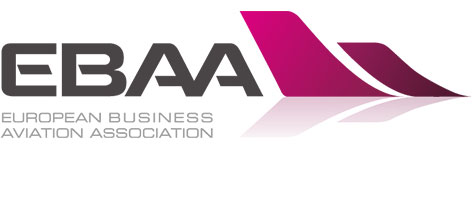
European Business Aviation Association


 SkyCare
SkyCare 
